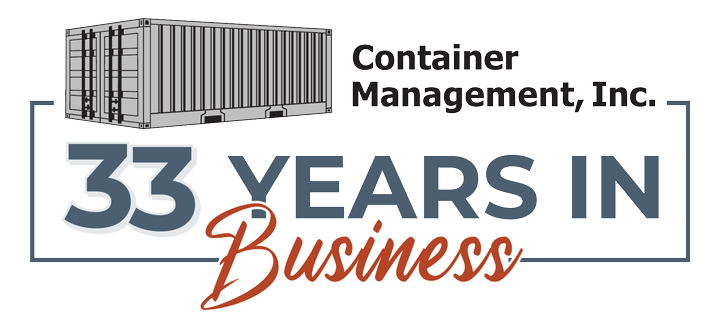Guide to International Freight Forwarders and Shipper-Owned Containers (SOC)
Written by Susan Nalevac | May 25, 2023
Shippers need to consider many factors when shipping internationally, including working with a freight forwarder and owning a shipper-owned container (SOC). Below, we’ll discuss the most important points shippers should know about freight forwarder services and how a shipper-owned shipping container (SOC) can benefit a shipper.
In This Article:
What Is a Freight Forwarder?
A freight forwarder is a third-party service provider that manages logistical services for shippers. In effect, freight forwarders act as intermediaries between shippers and the shipping carriers or steamship lines.
One could think of a freight forwarder as a concierge for shippers—they’ll make all of the logistical decisions about the transportation and freight on behalf of the shipper.
Services provided by freight forwarders include but are not limited to:
- Booking space and arranging for transportation with carriers
- Negotiating with export shipping carriers
- Obtaining freight insurance
- Preparing and ensuring export documentation compliance with international regulations
- Securing warehouse space
- Managing customs clearance
- Assisting with international payments
While using a freight forwarder when shipping internationally is not required, it is certainly useful, especially for those new to the process.
Benefits of Using a Freight Forwarder
The primary benefit of hiring a freight forwarder is the industry expertise and experience they provide to their shipping clients. Freight forwarders are international shipping experts who stay updated on global shipping laws, regulations, and customs that may apply to the shipper’s cargo.
International shipping is a complex process. An international freight forwarder acts as an expert guide to help shippers navigate this multifaceted process.
What Is a Shipper-Owned Container?
A shipper-owned container (SOC) is a container that is owned by an independent individual or business rather than the carrier. In contrast, a carrier-owned container (COC) is the carrier’s property that is rented out to shippers for a small fee.
Benefits of a Shipper-Owned Container
The primary benefit of a Shipper-Owned Container (SOC) is to avoid having to pay demurrage and/or detention charges to the shipping carriers. Demurrage is charged for a delay in the clearance of a container from the port, while detention charges are levied on a delay in the return of empty containers after de-stuffing the cargo. These fees can be quite substantial.
If the shipper intends to transport cargo long distances or to remote locations where delays are common, or if the shipper is experiencing frequent delays, purchasing an SOC might be a worthwhile investment, as it frees the shipper from detention charges and demurrage fees altogether, while providing more control over their supply chain.
When a container is owned by the shipper, they have control over the clearance of the cargo. Also, the question of returning the empty container does not arise as the container is owned by that person. The shipper can decide and arrange the exact date of clearance, thereby avoiding demurrage charges.
SOC also means that the shipper does not have to worry about container availability with the carrier to ship their cargo, especially during peak seasons or at times when empty containers are not available in the market. The shipper with an SOC will need to simply book their space on the freight carrier.
Conclusion
We hope you’ve enjoyed our brief guide on international freight forwarders and shipper-owned containers. If you’re interested in an SOC or want to learn more, Container Management, Inc. has shipping containers for sale in Chicago, IL and other locations nationwide.
Contact us to purchase your SOC, or learn more from our helpful staff.





